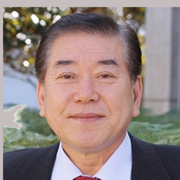- Level Foundation
- Duration 12 hours
- Course by Yonsei University
-
Offered by

About
This course will select six most outstanding issues in contemporary Korean politics and will engage in an in-depth, interactive inquiry of those issue. They include Korean politics in history, institutional setting of Korean politics, and dynamics of political culture in Korea, profiles of political leadership, myth and reality of the developmental state and the Korean economic miracle, and debates on Korean unification. The course will expose students to contending theories and empirical reality at first hand. After completing this course, learners will be able to 1. Grasp the most salient and timely aspects of Korean politics.. 2. Place South Korean politics in comparative perspectives. 3. Digest a delicate mix of theory and practice regarding Korean politics. 4. Come up with new interpretations of political development in South Korea. 5. Most importantly renew their genuine interests in Korea and Korean politics.Modules
Korean Politics in Historical Perspective
1
Assignment
- Graded Quiz
1
Discussions
- Yushin Regime
5
Videos
- 1.1 Why Korean Politics?
- 1.2 Korean Politics-Past History
- 1.3 The First and Second Republic(1948-1961)
- 1.4 Military Coup, Park Chung-Hee, and the Yushine Regime
- 1.5 The 5th Republic, Chun Doo-Hwan, and Democratic Transition
1
Readings
- Reading Materials
Dynamics of Democratic Transition in South Korea
1
Assignment
- Graded Quiz
1
Discussions
- Is democracy incompatible with economic growth?
5
Videos
- 2.1 Legacies of the Past and Transition to Democracy
- 2.2 Understanding Democratic Transition and Consolidation
- 2.3 Authoritarian Past and Transition Dynamics
- 2.4 Determinants of Democratic Transition in South Korea
- 2.5 Prospects for Democratic Consolidation in South Korea
1
Readings
- Reading Materials
Political Institutions in South Korea
1
Assignment
- Graded Quiz
1
Discussions
- Constitutional amendment
5
Videos
- 3.1 Understanding Political Institutions
- 3.2 Constitutional Foundation and Its Evolution
- 3.3 Korean Government
- 3.4 Why persistent Imperial President?
- 3.5 Conclusion: Debates on New Constitutional Amendment
1
Readings
- Reading Materials
Profiles of Political Leadership
1
Assignment
- Graded Quiz
1
Discussions
- Park Chung-hee- Assets and Liabilities
6
Videos
- 4.1 Understanding Political Leadership
- 4.2 Evaluating Political Leadership
- 4.3 Assessing Rhee Syngman
- 4.4 Evaluating Park Chung-hee
- 4.5 Evaluating Kim Dae-jung
- 4.6 Conclusion: some puzzles for discussion
1
Readings
- Reading Materials
The developmental State and the Korean Economic Miracle
1
Assignment
- Graded Quiz
1
Discussions
- Was Japanese colonial rule beneficial to South Korea’s economic development?
5
Videos
- 5.1 The Korean Economic Miracle: Empirical Check
- 5.2 Understanding the South Korean Economic Miracle ( I )
- 5.3 Understanding the South Korean Economic Miracle ( II )
- 5.4 Dark-side of the Developmental State and Policy Networks
- 5.5 Limits to the Developmental State and the Future of the South Korean Economy
1
Readings
- Reading Materials
Debates on Korean Unification
1
Assignment
- Final Graded Quiz
1
Discussions
- North Korean nuclear problem
5
Videos
- 6.1 Overview of Korean Division and Inter-Korean Relations
- 6.2 Understanding towards Korean Unification
- 6.3 The Sunshine Policy and Korean Unification
- 6.4 The Sunshine Policy - Its Limits and Constraints
- 6.5 The Future of Inter-Korean Relations and Unification
1
Readings
- Reading Materials
Supplementary: New Horizon of Democracy and Peace- Candlelight Protest
7
Videos
- 7.1 New Horizon of Democracy and Peace- Candlelight Protest
- 7.2 Impeachment of President Park Geun-hye
- 7.3 Swift to Progressive Power
- 7.4 the New Era of Moon Jae-in Government
- 7.5 Road to ‘a nuclear weapons free and peaceful Korea’
- 7.6 New foreign policy initiative
- 7.7 Interim assessment and challenges ahead of the Moon Jae-in Government
Auto Summary
**Course Overview: Understanding Korean Politics** Dive into the complexities of contemporary Korean politics with this foundational course designed to provide a comprehensive understanding of six key issues. Delivered by Coursera, this interactive program delves into Korean political history, institutional settings, political culture dynamics, leadership profiles, the developmental state, the economic miracle, and unification debates. Led by expert instructors, the course combines theoretical perspectives with empirical realities, offering learners the tools to analyze and interpret South Korea's political landscape. Over approximately 720 minutes of engaging content, participants will gain a nuanced perspective, enabling them to compare South Korean politics with other systems and develop informed viewpoints on political developments. Perfect for individuals with a keen interest in Korean politics, the course is available through flexible subscription options, including Starter and Professional plans, making it accessible to a wide audience eager to deepen their understanding and appreciation of Korea's political environment.

Chung-in Moon


